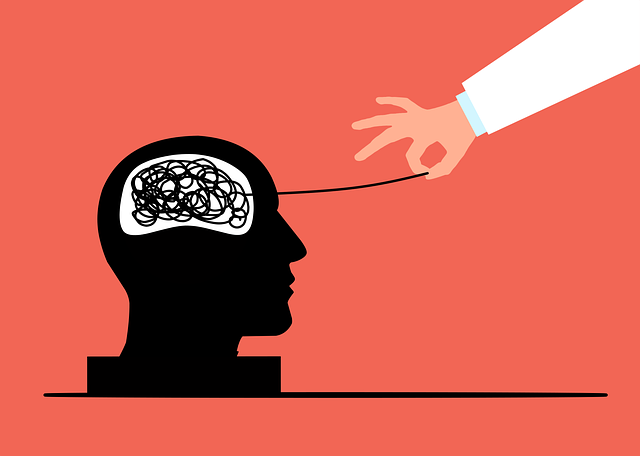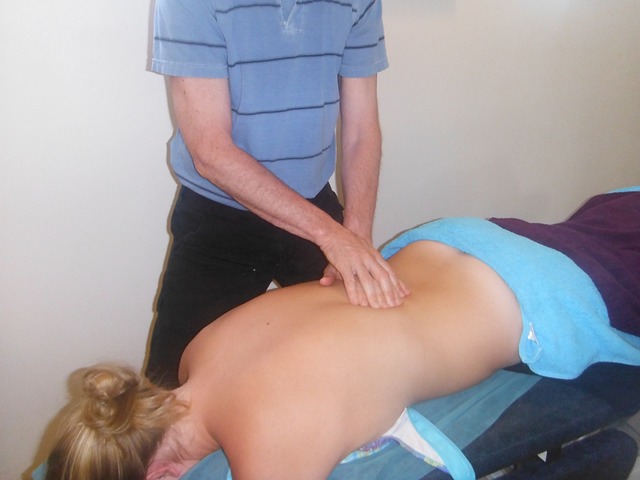Mindfulness-based stress reduction (MBSR) is an effective stress relief therapy that uses present-moment awareness and non-judgmental acceptance of feelings, thoughts, and sensations to reduce stress. Integrated into daily routines through practices like meditation and deep breathing, MBSR triggers the body's relaxation response, combating chronic stress linked to health issues such as heart disease, depression, and anxiety disorders. Regular mindfulness practice fosters emotional regulation, enhances mental clarity, and promotes calmness, leading to improved resilience in navigating challenging situations. Combining mindfulness with cognitive techniques, such as cognitive reappraisal, offers comprehensive stress relief therapy that reduces symptoms of anxiety and depression, improving overall quality of life.
“Unwind and reclaim your mental peace with Mindfulness-Based Stress Reduction (MBSR), a transformative approach to managing stress. This comprehensive guide explores the power of mindfulness, delving into its ancient roots and modern applications in stress relief therapy. From understanding the science behind stress reduction techniques to uncovering the key components of MBSR, this article provides valuable insights.
Discover the myriad benefits of practicing mindfulness for mental health, learn practical tips for incorporation into daily life, and explore popular exercises with real-life success stories. Take control of your stress and embark on a journey towards a calmer mind.”
Understanding Mindfulness and Its Impact on Stress Relief

Mindfulness is a powerful practice that involves focusing your attention on the present moment, without judgment. It’s about acknowledging and accepting your feelings, thoughts, and bodily sensations as they are, right here, right now. This simple yet profound act of awareness has been shown to significantly reduce stress levels. By cultivating mindfulness, individuals can learn to detach from stressful situations and gain a clearer perspective, leading to improved emotional well-being.
When integrated into daily routines, mindfulness practices such as meditation and deep breathing can become effective stress relief therapy. Research suggests that these techniques activate the body’s relaxation response, counteracting the physical effects of stress. This, in turn, enhances mental clarity and fosters a sense of calm, making it easier to navigate challenging situations with resilience and composure.
The Science Behind Stress Reduction Techniques

The science behind stress reduction techniques, such as mindfulness-based stress reduction (MBSR), reveals a profound impact on our mental and physical well-being. Research has shown that chronic stress can lead to various health issues, including heart disease, depression, and anxiety disorders. By employing strategies like meditation, deep breathing exercises, and yoga, MBSR aims to recalibrate the body’s response to stressors.
Neuroscientific studies indicate that these practices can alter brain function, increasing activity in areas associated with emotional regulation and reducing reactivity in stress-related regions. This not only helps individuals manage immediate stress responses but also fosters long-term resilience. Stress relief therapy, therefore, isn’t merely a band-aid solution; it empowers people to navigate life’s challenges with enhanced coping mechanisms, leading to improved overall quality of life.
Key Components of Mindfulness-Based Stress Relief Therapy

Mindfulness-based stress relief therapy is a holistic approach that combines mindfulness meditation and cognitive techniques to help individuals manage stress effectively. The key components of this therapy include teaching participants to focus on the present moment, non-judgmentally, thereby reducing the impact of stressful thoughts and emotions. Through regular practice, individuals learn to observe their feelings and sensations without reacting impulsively, fostering a sense of calm and emotional balance.
In addition to mindfulness meditation, stress relief therapy often incorporates cognitive reappraisal, where individuals are encouraged to challenge negative thought patterns and replace them with more balanced perspectives. This cognitive component helps in reframing stressful situations, reducing their perceived threat, and promoting healthier coping mechanisms. By integrating these practices into daily life, individuals can experience significant improvements in their ability to navigate challenging circumstances with greater resilience and reduced stress levels.
Benefits of Practicing Mindfulness for Mental Health

Practicing mindfulness has emerged as a powerful tool in the realm of mental health, offering substantial benefits for individuals seeking stress relief therapy. By focusing on the present moment and cultivating awareness, mindfulness practices help individuals develop a deeper understanding of their thoughts and emotions. This increased self-awareness can lead to better emotional regulation, enabling folks to navigate challenging situations with more clarity and composure.
Moreover, regular mindfulness engagement has been linked to reduced symptoms of anxiety and depression. It promotes a sense of calm and peace, fostering a mental resilience that can buffer against the adverse effects of stress. The simple act of observing one’s breath or engaging in mindful walking can significantly lower cortisol levels, often referred to as the stress hormone, thereby alleviating feelings of tension and anxiety.
Incorporating Mindfulness into Daily Routines

Incorporating mindfulness into your daily routine can be a powerful tool for managing and reducing stress. It’s not about setting aside dedicated time for meditation, but rather integrating mindful moments into your regular activities. Start with simple practices like paying attention to your breath while brushing your teeth or being fully present during a walk. These small, consistent actions can help train your mind to focus on the here and now, thereby lessening the grip of stressful thoughts.
Mindfulness becomes an effective stress relief therapy when it becomes a habit. Consider incorporating mindful eating, where you savor each bite and notice the textures and flavors, or practicing mindful communication by actively listening without judgment during conversations. By integrating these practices into your day-to-day life, you can cultivate a sense of calm and resilience that translates into better stress management overall.
Popular Mindfulness Exercises and Their Applications

Mindfulness exercises have gained significant popularity as a stress relief therapy due to their accessibility and effectiveness. One of the most common practices is mindful breathing, which involves focusing on the inhalation and exhalation process. This simple yet powerful technique helps individuals cultivate awareness, calm their minds, and reduce stress levels in daily life. By paying attention to each breath, one can reconnect with their body, quiet racing thoughts, and promote a sense of peace.
Another popular mindfulness exercise is body scanning, where practitioners systematically bring their attention to different parts of the body, observing sensations without judgment. This practice enhances self-awareness, helps identify areas of tension or discomfort, and facilitates relaxation. It’s particularly useful for managing physical symptoms associated with stress, such as muscle tightness or headaches, making it an integral part of many stress relief therapy programs.
Overcoming Common Challenges in Stress Relief Practice

Overcoming Common Challenges in Stress Relief Practice
Many individuals seeking stress relief through mindfulness-based practices encounter challenges along their journey. One significant hurdle is maintaining consistency. In a fast-paced world, integrating regular mindfulness sessions into daily routines can be difficult. However, it’s crucial to remember that progress isn’t linear; every small step counts. Starting with just 10 minutes of mindfulness per day and gradually increasing the duration as comfort allows can help overcome this challenge.
Another common obstacle is dealing with resistance or lack of interest. Some people might find mindfulness techniques unengaging or even boring. It’s essential to approach these feelings without judgment. Experimenting with different styles of practice, such as guided meditations, body scans, or mindful walking, can make the experience more enjoyable and accessible. Remember, stress relief therapy is a personal journey; finding what works best for you is key to staying motivated.
Integrating Mindfulness with Other Therapeutic Approaches

Integrating mindfulness with other therapeutic approaches offers a comprehensive strategy for effective stress relief. Mindfulness, a practice that cultivates present-moment awareness, enhances individuals’ ability to manage their thoughts and emotions. When combined with cognitive-behavioral therapy (CBT), for instance, it empowers people to challenge negative thought patterns while maintaining a non-judgmental stance. This dual approach not only provides a deeper understanding of stress triggers but also equips individuals with practical tools to navigate challenging situations.
Additionally, integrating mindfulness into traditional talk therapy or medication management allows for more holistic stress relief. Mindfulness can complement the insights gained from psychotherapy and the biological benefits of pharmaceuticals. By weaving mindfulness practices into their therapeutic regimens, mental health professionals enable clients to develop lasting coping mechanisms that extend beyond the confines of a treatment session, fostering resilience in managing daily stressors.
Real-Life Success Stories: Transforming Lives through Mindfulness

In an increasingly fast-paced and demanding world, many individuals are turning to mindfulness-based stress reduction (MBSR) as a powerful tool for transforming their lives. Real-life success stories abound, with people from all walks of life sharing how this therapeutic approach has helped them find calm amidst chaos. From busy professionals to students grappling with exam pressures, MBSR offers a practical and accessible way to manage stress effectively.
These success stories often highlight the profound impact of mindfulness on mental and emotional well-being. By cultivating present-moment awareness, individuals learn to detach from stressful thoughts and emotions, leading to improved resilience and overall happiness. Through dedicated practice, people have reported better sleep quality, reduced anxiety levels, and enhanced focus, all of which contribute to a more fulfilling and balanced life.
